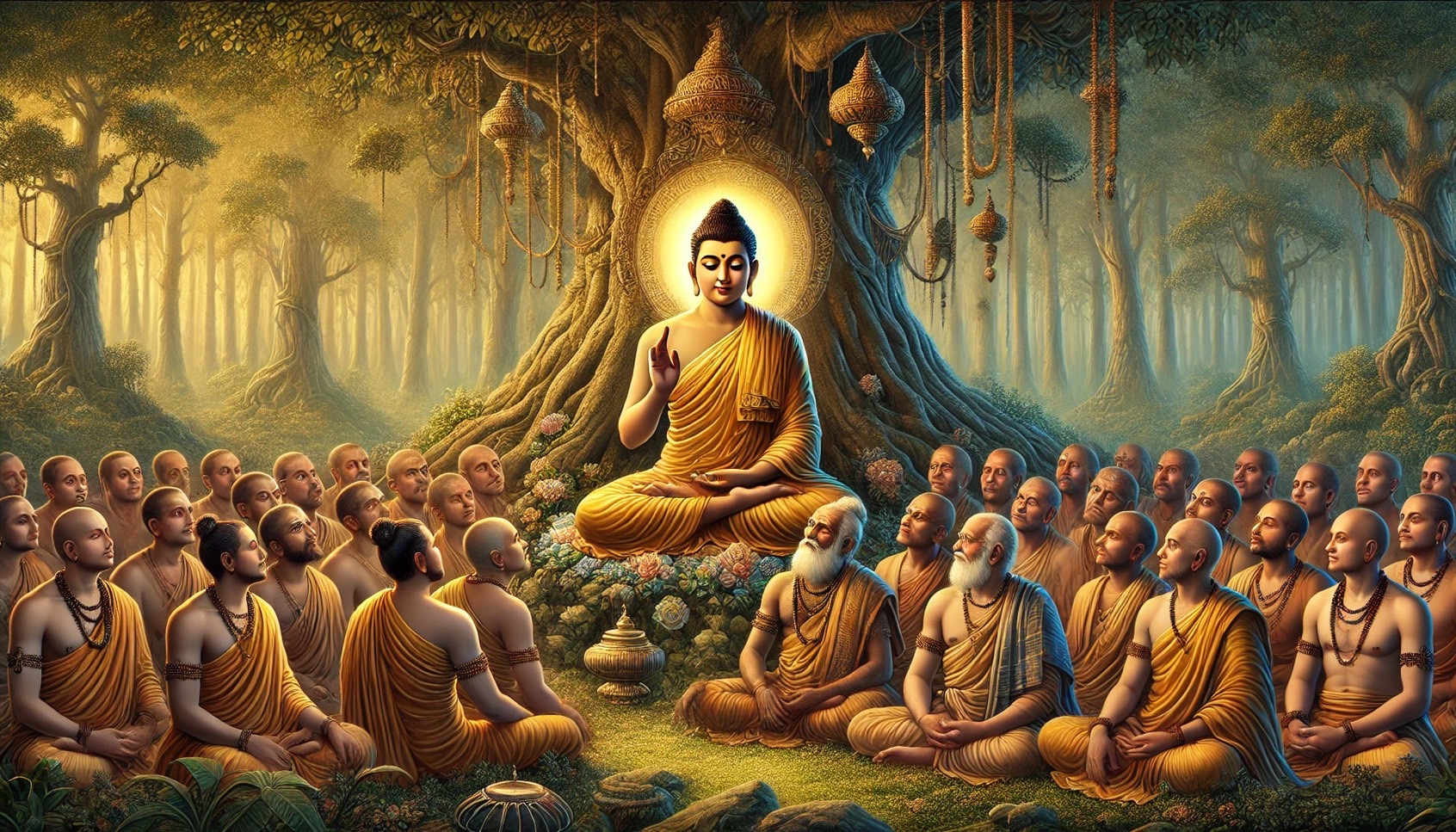
Date: 06/22/2024 06/23/2024
Location: Star Lake Meditation Center
Teacher: Otto Huang
Dharma Talk
Empathy – the method of self-understanding
Once, Buddha visited the Kosala kingdom, stopping at a Brahmin settlement called Bambo Gate Village, where he resided in the Shenshu forest on the outskirts to the north of the village.
The Brahmins of Bambo Gate Village, having heard of a Sakyamuni named Gautama who was revered as the one worthy of offerings, the perfectly awakened one, the practitioner of truth and righteousness, the ultimate liberator from birth and death, the supreme knower of the world, the incomparable leader of men to be tamed, the teacher of gods and humans, the enlightened one, and the most venerable in the world, and moreover, known to be the one in heaven and on earth among all beings who without a teacher’s guidance could realize and testify the truth by himself and teach others to achieve enlightenment, and his teachings, from beginning to end, were perfect in meaning and expression, revealing his wholly pure and holy life. Therefore, they eagerly gathered at Buddha’s residence, some paying their respects, some greeting him warmly, some introducing themselves, and some sitting silently aside.
After everyone had settled, one of the Brahmins spoke on behalf of the group:
“Master Gautama! We all aspire to live a life filled with children and grandchildren, anoint our faces with the finest sandalwood, adorn our heads with flowers, scent our bodies with fragrances, possess abundant gold and treasure, and furthermore, hope to be reborn in a better world after death. Master Gautama, please teach us how to achieve these desires.”
“Brahmins! I will teach you a self-taught method that puts oneself in others’ shoes. Please listen carefully:
What is the self-taught method of putting oneself in others’ shoes? Disciples studying the holy path should reflect like this: I want to live, not die; I look forward to happiness and reject painful deficiencies, thus, I do not enjoy being killed. I do not like being killed; likewise, other beings do not enjoy being killed either. How could I then kill other beings? Having thought and decided this way, one should abstain from taking life oneself, urge others to abstain from killing, and praise abstention from killing. Thus, one’s physical actions can be purified in three respects: abstaining from killing oneself, encouraging others to abstain, and praising abstention.
Similarly, I do not enjoy being stolen from, robbed, others committing adultery with my spouse, being deceived, my relatives and friends being alienated by instigation, being insulted with foul language, or being spoken to frivolously. Therefore, one should seek for oneself and persuade others not to steal, rob, commit adultery, deceive, sow discord, curse, or speak frivolously and praise such behavior. In this way, physical and verbal actions can be purified in these three aspects.
These seven restraints of one’s physical and verbal actions are the precepts leading to the holy path.
If one can do so and also achieve unshakable and pure faith in the Buddha, Dharma, and Sangha, then it is the holy disciple’s four unbreakable purities. Those with the four unbreakable purities can confidently say that they have attained the Srotapanna, will not be reborn in hell, as animals, hungry ghosts, or any other evil realms, and will surely aim towards liberation. At most, they will cycle through human and heavenly realms seven more times before reaching the end of suffering and attaining liberation.”
Upon hearing this, the elder Brahmins present felt great joy.

